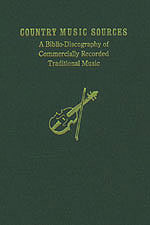
from http://www.lib.unc.edu:
Guthrie “Gus” Turner Meade, Jr., was born in Louisville, Ky., on 17 May 1932. He worked at the Indiana University Folk Music Archives and, later, as an assistant at the Indiana University Press. He avidly collected 78 rpm country music records, partly to help him learn fiddle tunes. Meade’s correspondents included record collectors, discographers, and music scholars around the world, including folklorist John Edwards in Australia, Archie Green, Eugene Earle, D. K. Wilgus, Fred Hoeptner, Willard Johnson, and Dan Mahoney.
In 1965, Meade began working at the Library of Congress Folk Music Archives as a programmer/analyst, automating the vast collections. Each summer, Meade went to Kentucky to research Kentucky fiddlers, who had recorded on some of the early 78 records. At this time, he worked with John Harrod and Bruce Greene, who were also researching Kentucky fiddlers. Meade became close friends with Charlie and Noah Kinney, fiddling brothers from Lewis, Ky., and recorded their music on many occasions. He also spent a great deal of time conducting personal interviews with traditional fiddlers.
He recorded Kentucky fiddler Buddy Thomas and arranged for Mississippi fiddler Hoyt Ming to record and play at the Smithsonian Folklife Festival. During the 1970s, Meade and Mark Wilson produced three albums of Kentucky fiddle music on the Rounder label: J. P. and Annadeene Fraley’s “Wild Rose of the Mountain” (Rounder 0037), Buddy Thomas’s “Kitty Puss” (Rounder 0032), and Ed Haley’s “Parkersburg Landing” (Rounder 1010). The Buddy Thomas recording became particularly important given the young fiddler’s sudden death only months after the project’s completion.
In 1980, Meade and discographer Richard Nevins compiled an important three-record set of rare Gennett recordings of early Kentucky fiddle music. The Morning Star releases (45003, 45004, and 45005) include biographical information on the musicians and represent an important contribution to traditional music scholarship.
Meade’s most significant achievement may have been his annotated discography of early traditional country music, begun in 1956. This comprehensive work includes some 14,500 recordings of 3,500 songs organized into four categories: ballads, religious songs, instrumentals, and novelty songs. In 1986, Meade received a grant from the National Endowment for the Arts to prepare the discography for publication. Shortly afterwards, the family moved to Kentucky, where Meade worked long hours on the project. He was working on the introduction to the discography at the time of his death. His wife Mary has indicated that she will work toward the project’s publication, with the help of her son Doug and discographer Richard Spottswood.
On 8 February 1991, Meade suffered a massive cerebral hemorrhage at his Franklin County, Ky., home. He died the next day at the University of Kentucky Medical Center in Lexington at the age of 58.
